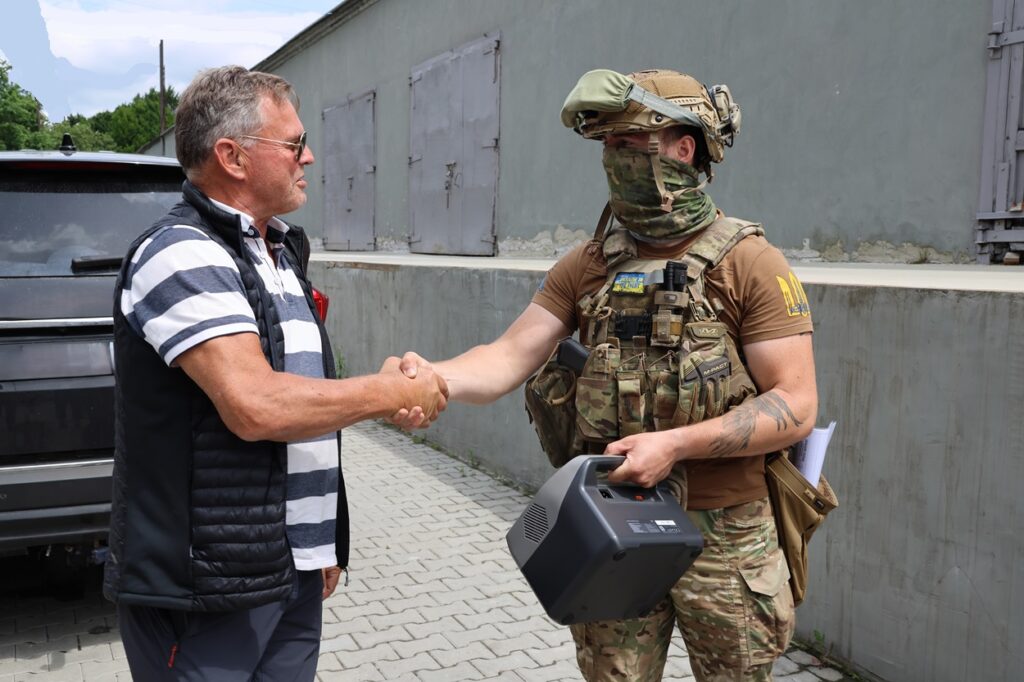- Dette innlegget er også tilgjengelig på norsk.
Over Half of Ukraine’s Power Production Has Been Bombed and Disabled – Civilians Are Suffering
Deputy Mayor Serhiy Kiral of Lviv fears that as much as 80% of the nation’s power production could be destroyed by winter.
A winter without electricity could mean a humanitarian catastrophe.
Serhiy Kiral describes a city in constant flux. Due to the war, Lviv’s population has grown by 150,000, mainly from people fleeing the war-torn regions in the east and south. Although the old city and center have been spared major damage, essential civilian infrastructure, particularly the energy supply, has been severely impacted.
Power Plants Are Bombed
“Power stations and grids on the city’s outskirts have been bombed several times, and most coal plants are permanently destroyed,” Kiral reports.
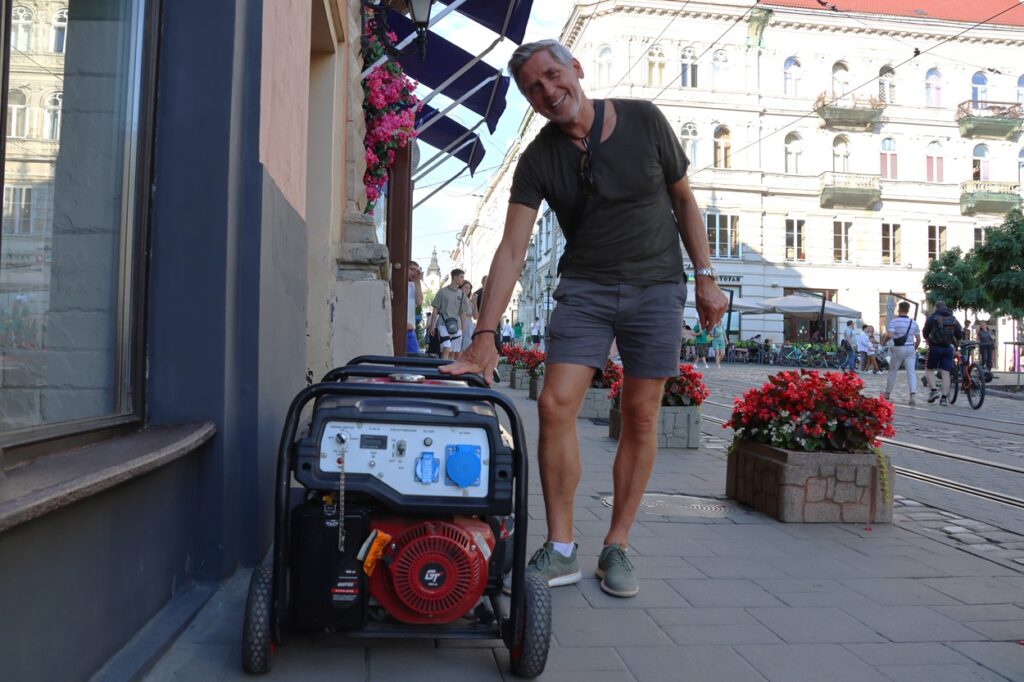
Kiral alternates between his duties as deputy mayor and his role at the front. He envisions a future where Ukraine’s power supply relies on nuclear energy and small modular reactors, a solution that could create a more resilient grid. Meanwhile, the country depends on liquefied natural gas (LNG) to meet energy demands.
Jonny Hesthammer from Bergen recently visited Ukraine and saw the consequences of the war up close. Back in Norway, he serves as CEO of both M Vest Energy, an oil exploration company, and Norsk Kjernekraft, a nuclear energy firm.
Both companies are owned by Trond Mohn, who has contributed significant support to Fritt Ukraina.
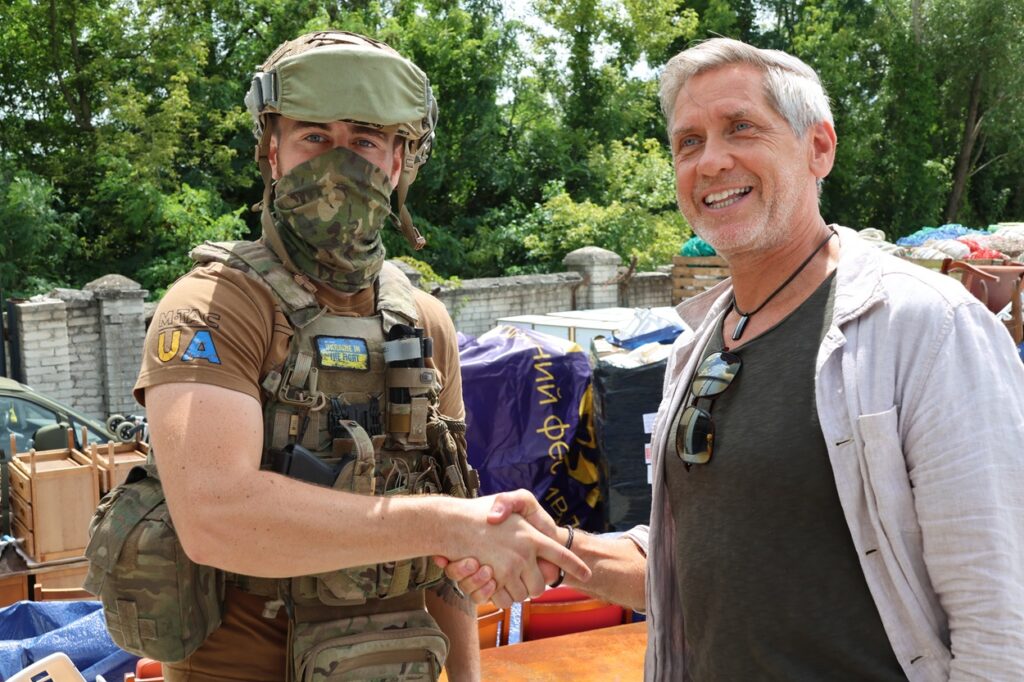
Hesthammer expressed deep concern for Ukraine’s energy supply, especially with winter approaching.
“Half of Ukraine’s electricity supply is down, and the Russians are likely to target more power plants as winter approaches,” says Hesthammer.
“This could lead to a humanitarian disaster, with rolling blackouts and frozen water pipes, potentially causing many lives to be lost.”
Fighting to Save the Country and Secure Power Supply
Hesthammer spoke of “The Lion,” one of the soldiers Fritt Ukraina met and to whom they delivered vehicles and supplies. “The Lion” is a squadron leader within HUR, a division in the intelligence service that operates drones on the front lines. They are concerned about the energy supply for their families.
The solution to power outages has been small diesel generators, but larger energy needs require substantial resources and international aid. Recently, Norway and Ukraine signed a new energy cooperation agreement.
“These people are fighting to save their country and their families from the Russian invasion. They’re also fighting to ensure that citizens have power for the winter,” Hesthammer explains.
Without power, the country stops. The Russians know this, which is why they target coal power plants that contribute significantly to electricity production. Today, almost none of these plants can produce power. In addition, the Russians have taken control of Ukraine’s largest nuclear power plant in Zaporizhzhia.
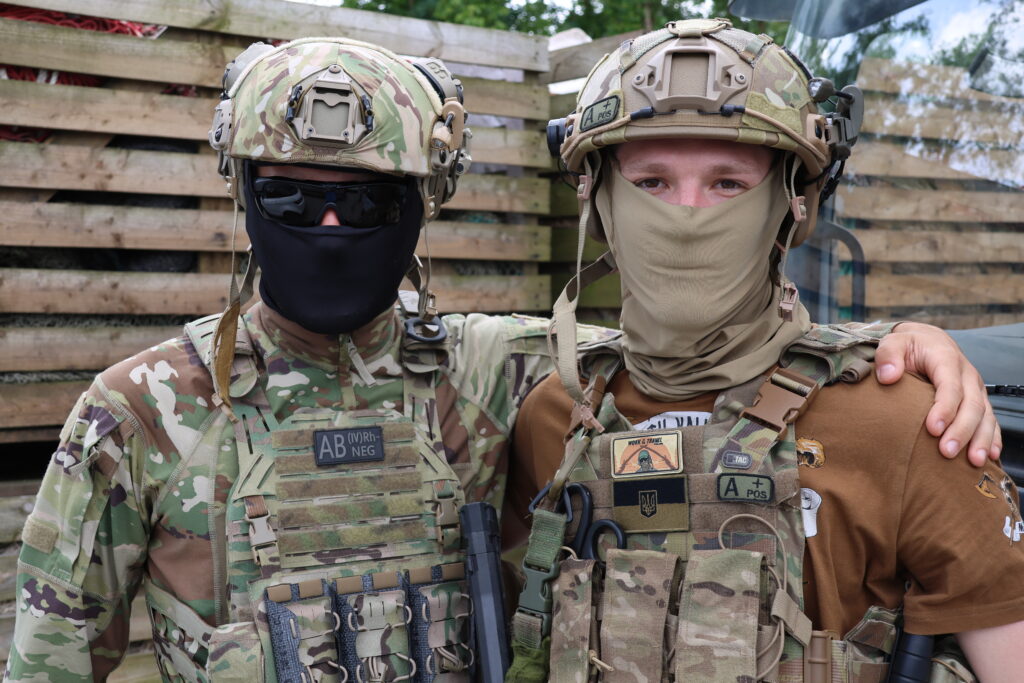
Rolling Blackouts
Lviv is already experiencing rotating blackouts for several hours each day. Deputy Mayor Kiral fears that the situation could become so dire that they won’t have power to handle sewage.
“In that case, we would have to stop the water supply,” he says.
In addition to the increased need for air defense, Ukraine is now trying to acquire enough mobile power plants that run on either diesel or gas. Bergen Engines is helping by supplying LNG engines.
“The world, and especially Norway, must act quickly,” says Hesthammer. There are initiatives underway to secure enough power for citizens for winter, but the need for air defense systems to protect against missile attacks is critical.
Hesthammer emphasizes that what Ukraine is going through can serve as a lesson for other countries.
“Norway needs to ensure a stable energy supply that doesn’t depend on weather or neighboring countries. We must prepare for increasing geopolitical instability.”
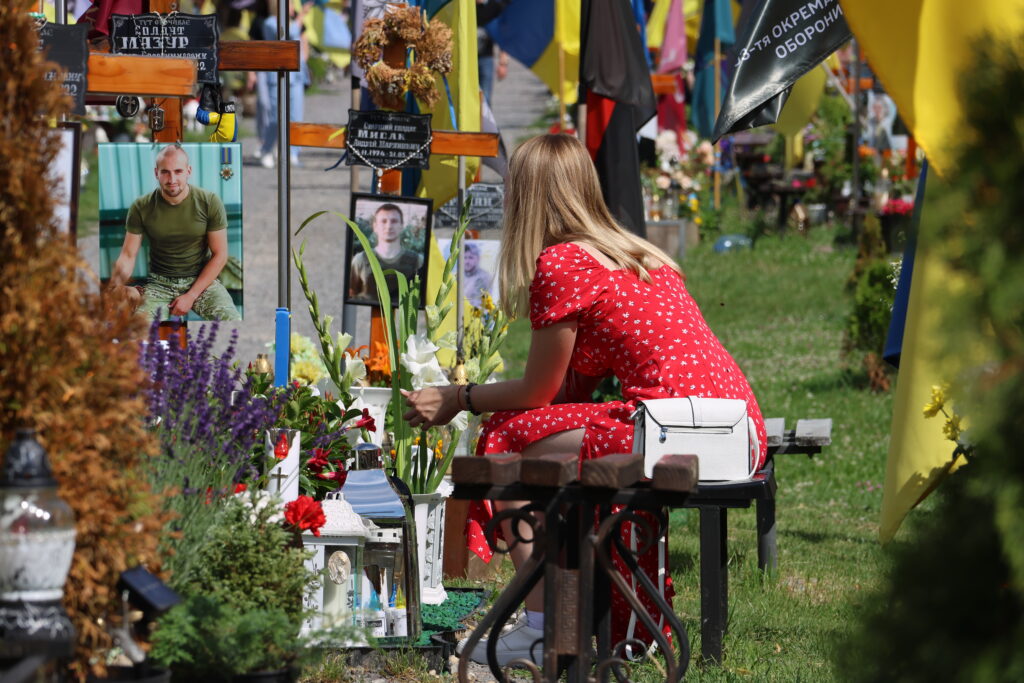
A Mission to Help
Hesthammer joined a volunteer transport mission with Fritt Ukraina. In addition to ten cars and three ATVs, they brought equipment such as drones, camouflage nets, 3D printers, computer equipment, and high-capacity power banks, which were delivered directly to soldiers at the front.
The soldiers had been in combat that same morning and were heading straight back to the front after. Hesthammer describes the feeling of contributing as both fulfilling and necessary.
“The visit was extremely educational, both personally and professionally. We witnessed powerful scenes. At the ‘Fields of Mars’ war cemetery, we saw hundreds of graves of young soldiers who sacrificed their lives. It’s hard to grasp the scale of the situation from Norway, but being here makes everything much clearer,” he says.
Hesthammer ends with a call to action:
“We need to help those here now, but also learn and prepare for the future. Ukraine needs our support, and we must be ready to protect ourselves.”
